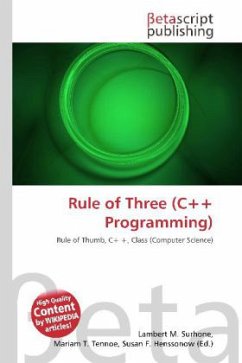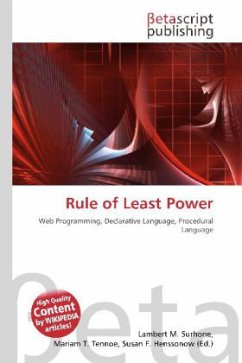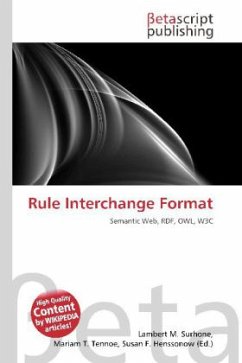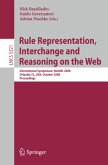Please note that the content of this book primarily consists of articles available from Wikipedia or other free sources online. The rule of three (also known as the Law of The Big Three or The Big Three) is a rule of thumb in C++ that claims that if a class defines one of the following it should probably explicitly define all three: destructor copy constructor copy assignment operator These three functions are special member functions that are automatically created by the compiler if they are not explicitly declared by the programmer. If one of these had to be defined by the programmer, it means that the compiler-generated version does not fit the needs of the class in one case and it will probably not fit in the other cases either. The term "Rule of three" was coined by Marshall Cline in 1991.
Bitte wählen Sie Ihr Anliegen aus.
Rechnungen
Retourenschein anfordern
Bestellstatus
Storno








